
REPORTAGE
20-08-2020 by Freddie del Curatolo
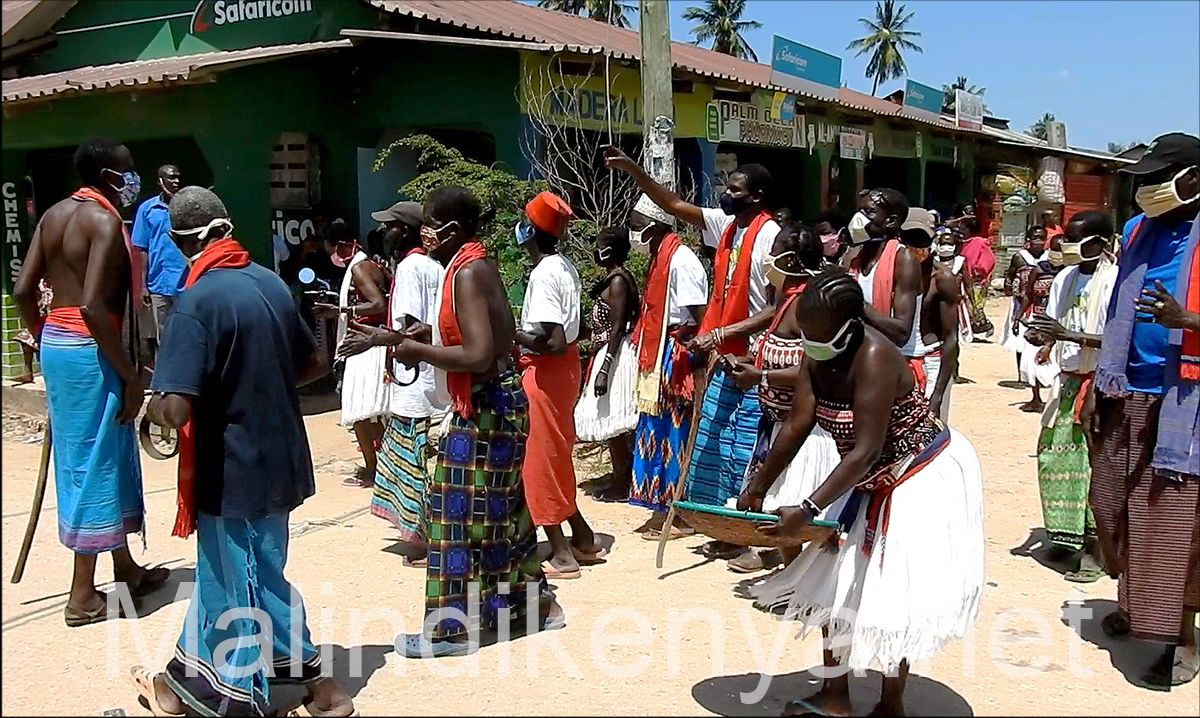
I remember the first time I set foot in Tezo.
The first thing I thought was the paradox, as an Italian, of that name pronounced with the soft zeta, Teso. People were much more "pole pole" than in Malindi, the clusters of mud huts and makuti were half-asleep in the shade of palm trees and many cashews.
There was a shed where they piled the fruits and cleaned them with such phlegm that I couldn't imitate it, except falling into a state of trance.
Today that village on the dusty Kilifi-Malindi axis is an industrious village crossed by trucks and on the road once little frequented there are dozens of buildings with shops of all kinds: hardware stores, greengrocers, car parts dealers, mobile phones and gas cylinders. More bars, restaurants and other diminutives of activities to the public.
This place, unlike others, gives you the idea that there are people working.
The caravan of KEMRI and MADCA sets up their tents two hundred meters from the street, in the forecourt where the customers of the Sundowner Night Club & Restaurant used to stop, now closed for Covid-19.
One of the old souls of the country tells me that once upon a time the club stood right in front of it and that here stood one of the companies where cashews were shelled.
At the end of the day, the workers spent most of their pocket money in alcohol at the bar and there were also spacious rooms more or less like the changing rooms of a municipal swimming pool in Italy, where they could entertain themselves with girls of dubious but almost obligatory morality.
We would sit down and discuss how even here in thirty years we have gone from cashews and whores to whatsapp and free porn sites.
Then back to smashing coral stones in the quarries near the sea because the cashew factories, one of the pride of Kilifi and around it, have closed and wild construction has increased exponentially.
But that's not why we're here, we're "madbusters", good hunters of the mentally handicapped to show the locals that it's time to consider them human beings and not creatures of the devil and take them to hospital without any problems, for them the treatment is free, rather than putting them in chains behind a hut when they freak out.
We have to hurry, because if cashews become gigabytes and show that civilization arrives here too, it doesn't kill but takes many prisoners, there is the risk that here we pass from the ancient beliefs to the new concept of "different" that regulates a large part of public opinion.
And our "madmen" go from being demons to victims of the frustrations of others.
How to say from the frying pan to the grill, or rather, from sufuria to jiko...
Memories and considerations are the leit-motif of the day, while the Mijikenda singers gather in a circle at the edge of the street and start singing the Mwanzele and dancing.
Their percussions, shards of glass inside a basket, maracas made from insecticide milk in addition to the traditional chechemeko and ancient iron circles played with a clapper, give the rhythm to the walk that leads them in front of the Sundowner where the show begins, interspersed with lessons from doctors and researchers on epilepsy, bipolarism and schizophrenia.
Like a magic flute, music and words enchant and attract the strangest and most unusual characters of the village.
In every village there are more of them than you can imagine, each with its own characteristics, its own motivations, its own path.
And in every stage of our journey of awareness and music, there is always the official "madman", the "village idiot" who wants to participate in the party.
Katana has a strong tight sack under her armpit, it's her whole life and fills it with certainties, fears, mysteries, dreams.
Then he stops to talk to us, to the psychologist, to the artists.
And at the end we throw ourselves into the sack dance, saying goodbye as friends found.
Him with the memories in the bag, me with a lot of memories.
REPORTAGE
by Freddie del Curatolo
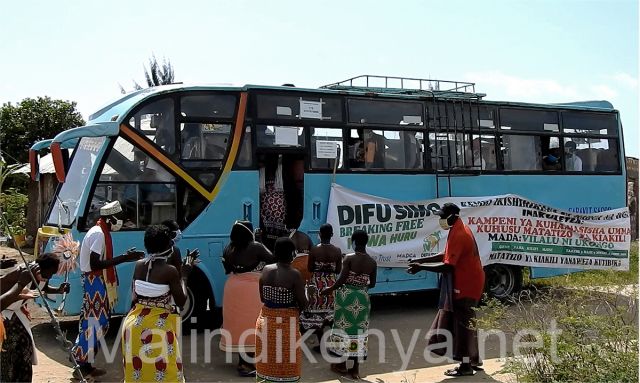
The "madmen" of Kenya, for a simple observer, are particularly intriguing creatures.
One...
REPORTAGE
by Freddie del Curatolo
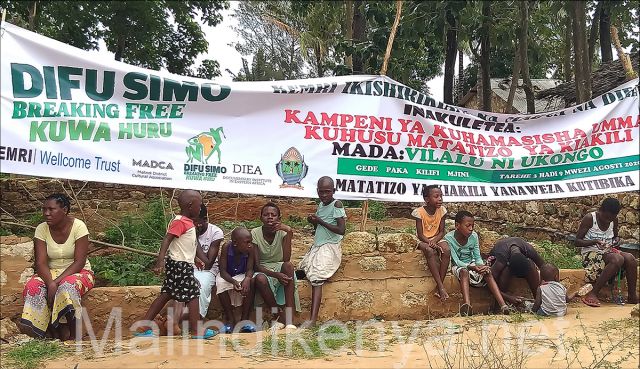
In Matsangoni you dance, in Matsangoni you live long.
The village...
REPORTAGE
by Freddie del Curatolo

It rains in the wet in Gede, away from the ruins visited by tourists (when there are any) and on...
EVENTS
by redazione
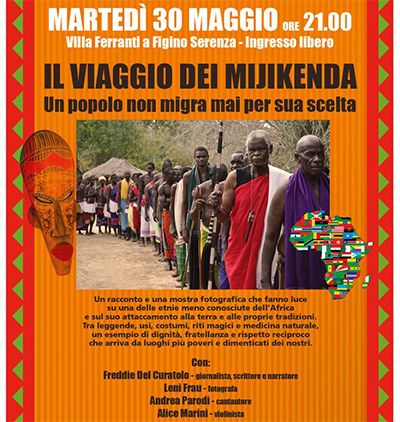
An evening of stories about Kenya and the Mijikenda ethnicity this Tuesday at Figino Serenza in the province of Como.
With free entrance, in the beautiful and elegant frame of Villa Ferranti, the headquarters of the municipal library, Malindikenya.net's director...
INITIATIVES
by Freddie del Curatolo

If there is one category of disabled people who are even more disadvantaged than being born in...
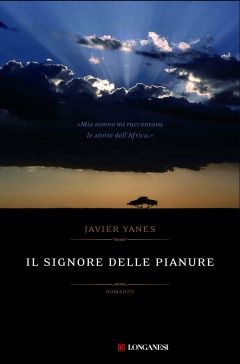
A good read, about past times and those who dream of reviving them, until reaching the origin of those ancient tales narrated here. It's the Kenya of «Lord of the prairie», the latest book by the spanish writer Javier Yanes.
EVENTS
by redazione

This year Freddie of the Curatolo chose children as a public to tell her stories of Kenya, between nature, solidarity and fun moments.
They are elementary schools, especially quarters and scenes, listening to stories that go from baobab to schools...
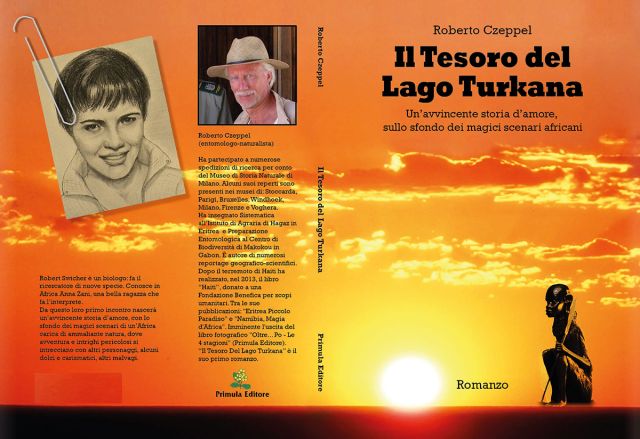
On Thursday, Nov. 1, at 7 p.m., entomologist and writer Roberto Czeppel, a leading expert on Africa, will...